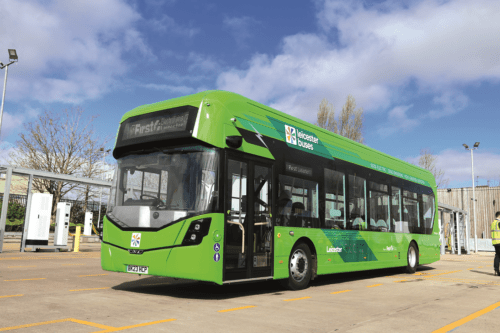
A recent report from IPPR suggests that although bus services are vital, much more is needed to make them fit for the future
“Buses play a crucial role in the lives of people in England. From the daily commute and trip to school or university, to shopping or a visit to see family and friends; buses connect many of us with the things we need and care about. A good local bus service can be the difference between isolation and the ability to live a good quality of life.”
We hear similar quotes in press releases and strategy documents every day, telling us what the industry already knows. That buses are vital to people’s lives across the country. Cutting through the emotive language that usually accompanies such news stories, and reading the local outcries whenever a service is proposed for withdrawal, it is clear that buses are very much still vital for the economy and for the well-being of millions of people.
The quote at the start of this page comes from a recent report, dated June 2023, by think tank IPPR, which outlines what would be required to, in IPPR’s words, ‘truly level-up the bus network and bring all of England’s metropolitan areas up to the same per head level of provision as London.’ The report begins by acknowledging that, despite decline, the social significance of buses remains high, and that the public sees them as a vital part of an effective, clean, and fair transport system. Action to address regional inequality in access to local public transport must go hand in hand with a faster decarbonisation of bus fleets across urban areas, IPPR says.
“Buses have a crucial role to play in the UK’s path to net zero,” says the report. “The UK government’s existing transport decarbonisation plan fails to deliver the rapid and deep emissions reductions needed to keep 1.5 degrees of global warming in reach and does not grasp the opportunities that would come from prioritising widespread behaviour change.” It urges a greater focus on high quality local public transport, integrated with improved walking and cycling routes, community transport, and shared mobility schemes, and at a time when a general election is imminent, adds that decisions and investment made by the next UK government will either support a rapid renaissance for local buses or see more bus services lost across England, with serious negative consequences for people’s lives and the UK’s ability to reach net zero.
[…]By subscribing you will benefit from:
- Operator & Supplier Profiles
- Face-to-Face Interviews
- Lastest News
- Test Drives and Reviews
- Legal Updates
- Route Focus
- Industry Insider Opinions
- Passenger Perspective
- Vehicle Launches
- and much more!


